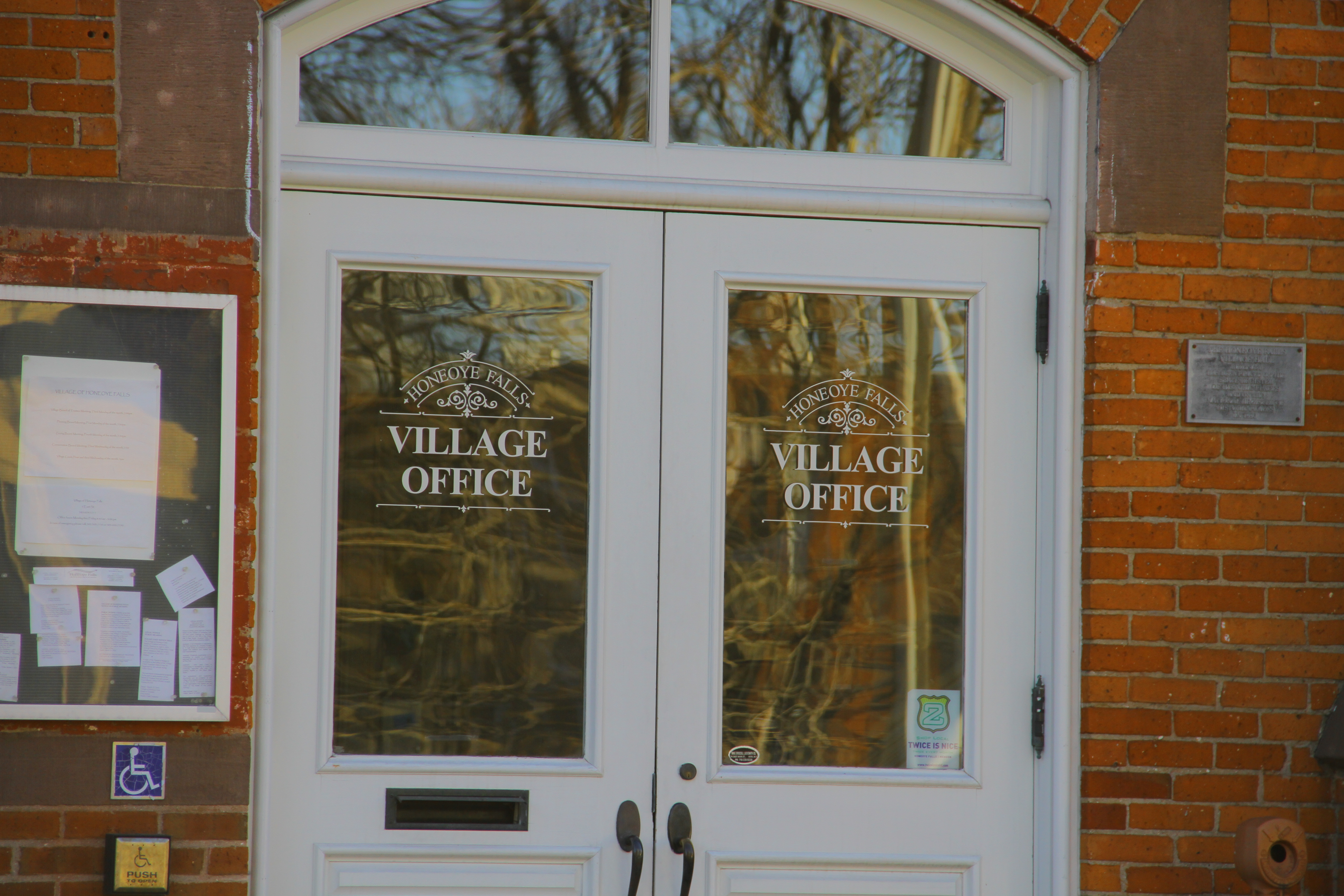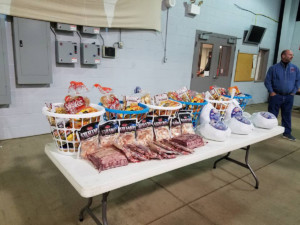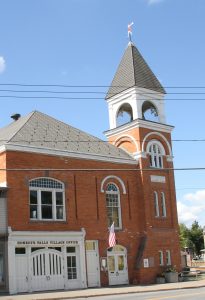BY JENNIFER CROWLEY
Scottsville homeowners crowded the village’s board room the evening of Tuesday, February 13th, for the opportunity to share their feelings on two tax-related proposals that will be up for vote shortly.
The first item for public hearing was the establishment of a local law to override the tax cap for the 2018-2019 budget year. A number of residents asked questions about implications of implementing this local law for the coming budget year. As the 30-minute dialogue between the public and the Board of Trustees concluded, the Board voted to keep the item open for public comment until the next meeting.
At the heart of this discussion was the New York State law passed in 2011 mandating that every school district and municipality adopt a tax-cap limit. As residents shared their opinions and concerns at this meeting, it was apparent that there is a lot of confusion between a “tax rate” and a “tax levy.” The latter is what the tax-cap law refers to and what the Board is seeking to address.
Tax Rate Versus Tax Levy
A tax rate is a number used to calculate a homeowner’s property tax bill. For fiscal year 2017-2018, the village tax rate was 5.893658 per $1000 of a home’s assessed value. By comparison to other county villages, Scottsville’s rate was fairly average – Webster had the lowest rate at just over 2 percent while East Rochester’s was 15.38 percent. So for a Scottsville residence that is assessed at $150,000, the village tax bill for that homeowner would have been $884 dollars.
The “tax levy” is the amount that a government or other body with taxing authority will collect from all its taxpayers in a year. In 2017-2018, the Scottsville tax levy was $539,871; this is the figure that typically makes up at least 50% of the village’s budget. The law passed in 2011 limits how much that levy can grow year-to-year to 2 percent or the rate of inflation, whichever is less.
In general terms, a levy is calculated by taking the total amount of taxes levied (not collected) in the prior fiscal year and applies a “tax base growth factor,” as determined by the Commissioner of Tax and Finance. For Scottsville, that rate for the coming year appears to be 1.0009 percent.
A municipality can exceed the imposed tax levy limit if at least 60% of its governing body vote in favor of a local law overriding the cap. Enacting this law does not mean that a governmental body will exceed the tax cap, it just provides a safety net should unforeseen circumstances (costs) arise. If this local law is to be enacted, it must be done prior to a budget being ratified which is why this discussion is happening now in Scottsville – as it has nearly every year since the law hit the books in January 2012. If a municipality exceeds the tax cap with no local law providing for that, there are potential negative ramifications from the state comptroller’s office.
In looking back through the Scottsville Board of Trustees’ voting records, the “local law” up for debate for 2018-2019 has been passed nearly every year since 2012. For the vote in 2016, there was zero public input received; for the vote in 2014, there was three minutes of public commentary provided.
So why the interest in 2018 around a vote that essentially serves to only protect the village? Perhaps because it is an election year in Scottsville with four Board seats up for vote, including the mayor’s position.
The second topic up for debate during the February 13th meeting was the proposal to move village waste pick-up services off of the levy and instead apply the charge to residents as a standard fee. This was another lively discussion with residents expressing frustration with an idea of paying ‘more for less,’ though that has not been determined to be the definitive outcome.
This proposed idea is another way to release funds out of the levy so that the village can do more with the means it has to work with. Currently the cost of village trash and recycling pick up is blended into each resident’s village tax bill which is based on the assessed value of a home. The Board is looking at a flat fee per household of approximately $115 dollars annually which translates into about $80,000 annually that could be applied to other village expenses. The two core concerns expressed by residents speaking that evening were that 1. As a fee, the expense will no longer contribute to a taxpayer’s overall burden and 2. That this fee will increase every year.
For comparison’s sake, Scottsville is one of the last villages in the county that still has solid waste costs as part of its general budget and not based on user fees. Churchville passed its law back in 1990 while most other county municipalities simply do not offer the service, residents contract privately for it instead. A January 2016 article in the Democrat & Chronicle entitled, “How High is Your Trash Bill?” found that for private trash pickup across the county, residents pay $355 annually on average.
Should this change receive the Board votes needed to pass, the Village will still utilize its own labor and equipment with no other changes apparent to residents beyond writing a separate check for the service. Like the tax cap discussion, this item was also deferred for future discussion with the public commentary period remaining open.
Certainly these two upcoming Board votes are related. If the Village fails to pass both, the 2018-2019 budget will likely have a fairly austere feel to it. Passing the tax cap local law may enable the tabling of the garbage discussion until a later time while passing only the garbage fee change would give some breathing room to the total levy.
The next Board meeting is scheduled for March 13th where these topics will be picked back up for action. Ideally the community and its governing body can arrive at decisions that are beneficial to the approximately 2000 residents living in Scottsville. From the senior citizen living on fixed means to the families with small children, facts and common sense must prevail to maintain a reasonable quality of life for all living in one of Monroe County’s smallest villages.
For updates to local law and related activity in the Village of Scottsville, residents are reminded that the village’s website, www.scottsvilleny.org, posts meeting announcements, agendas and minutes.






